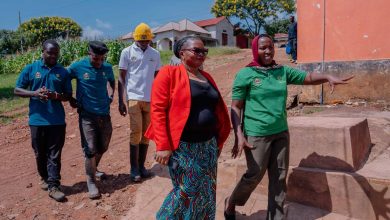Policy reforms needed for youth agribusiness

DAR ES SALAAM: THE agribusiness sector is gaining momentum, with experts urging policy reforms to improve youth access to finance and resources.
Director of the Sokoine University Graduate Entrepreneurs Cooperative (SUGECO), Mr Revocatus Kimario, said agribusiness across the country is expanding through partnerships and collaborative initiatives that enhance productivity.
“Agribusiness is becoming more collaborative and many regions are now working together to boost productivity.” Mr Kimario said recently during a multi-stakeholder meeting in Dar es Salaam.
There are various models that specifically can target young people entering the sector, that’s why we meet here to get proposals from various stakeholders, Mr Kimario said.
However, he pointed out, youth involvement remains limited due to financial and policy barriers that make it difficult for them to invest in farming.
The meeting, organised jointly by the Agribusiness Market Ecosystem Alliance (AMEA) and the Agricultural Non-State Actors Forum (ANSAF), brought together stakeholders from government, academia and the private sector to discuss strategies for strengthening youth participation in agriculture.
ALSO READ: AMDT project empowers women in agribusiness
SUGECO, a member of AMEA, has been instrumental in promoting innovation, entrepreneurship and skills development among graduates venturing into agribusiness. Mr Kimario said the establishment of innovation hubs across the country as a major step toward integrating technology into farming and keeping young people competitive.
“We want to ensure that even those already engaged in farming are not left behind. Technology is the main driver that will help transform agriculture, from precision irrigation systems such as drip irrigation to datadriven farming,” he said.
Despite these initiatives, Mr Kimario noted that policy-related obstacles continue to discourage young graduates from pursuing agribusiness. He cited strict loan conditions that require three-year bank statements, prior work experience, or collateral, all of which exclude new graduates.
“A graduate may have the skills and enthusiasm to start a farm, but without financial history or collateral, it becomes impossible to access loans,” he said.
ANSAF Director General Mr Ikunda Terry echoed these concerns, saying that even when funds are available, the financing structure remains unsuitable for emerging agripreneurs.
“Rigid financing models lock out young people who have the ideas and energy to drive commercial farming. “Reforming these systems would help unlock the potential of thousands of young Tanzanians ready to turn agriculture into a profitable enterprise,” Mr Terry said.
Razack Mbaraka, youth leader of the Build Better Tomorrow (BBT) youth AMCOS, said young farmers are eager to access capital to start their own ventures after completing capacity-building training.
“Access to funding is key for youth to apply their skills and become self-reliant in the sector. We are here to explore opportunities and meet stakeholders who can support our initiatives,” said Mr Mbaraka adding stressing the importance of collaboration and learning from experiences across different countries.
He said that enabling youth access to capital, technology, and training will be crucial for long-term food security, economic growth, and the transformation of the country’s agribusiness sector.





